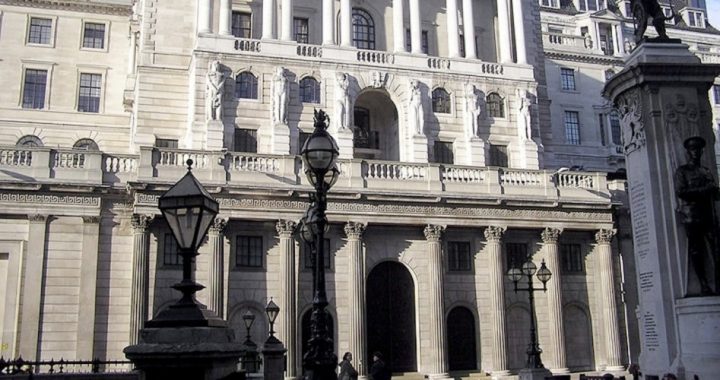
July data for the coalition government of the United Kingdom shows corporate tax collections below estimates and government spending over estimates, increasing speculation that more government spending reductions may be near. Last month’s deficit of ₤557 million compared with a surplus of ₤2.8 billion in July of 2011. The government budget deficit in the 2011 fiscal year was 6.2 percent of the nation’s GDP and the government’s goal was to reduce that to 5.8 percent of GDP by fiscal year 2012. The July data showed that government receipts in July fell by 0.8 percent from the previous year while government spending rose by 5.1 percent from the prior year. The fiscal data from July 2012 makes the goals set by the British government seem increasingly improbable.
Britain may also be facing what a number of other European nations have endured over the last several years: a downgrading of credit rating of government bonds, raising the interest rates which must be paid in order to pay borrowed money. Currently the UK has a comfortable AAA credit rating, but if there is a significant increase in government borrowing, that could change. The deficit for the current year was estimated to be ₤96 billion; however, the new data suggest that the deficit could reach ₤126 billion if current trends continue.
The British government’s Office of National Statistics, reporting on data available in July, already was cautiously negative:
The overall picture is of an economy that remains fragile, against a similarly weak global economic backdrop. UK GDP is estimated to have contracted by 0.7 per cent between the first and second quarters of 2012, with the construction sector making a substantial negative contribution to growth for the second consecutive quarter.
Private analysts agree. Vicky Redwood at Capital Economics predicted:
At this rate, borrowing for 2012/13 overall will massively overshoot the Office for Budget Responsibility’s forecast. With the recovery falling well short of the OBR’s expectations, we think that the government will struggle to cut borrowing at all next year either.
Fitch and Moody’s both currently have the United Kingdom on a “negative watch” status with regard to bond ratings, meaning that while they have as yet taken no action to downgrade British government bonds, a reduction is under review. Standard & Poor’s, as of its last report, considers UK bonds “stable.”
The PIIGS nations —Portugal, Ireland, Italy, Greece, and Spain — already have very low bond ratings, with Greek government bonds now at the “junk” level. As these governments are compelled to borrow more and more, the capital available for nations such as Britain and France to borrow will be reduced, as well as the capital needed for business investment and growth.
The overall situation in the eurozone is dire. Regional GDP in the first quarter of 2012 contracted .3 percent and the latest data for the second quarter of 2012 shows an additional contraction of .2 percent. Even more alarming, the government debt-to-GDP ratio has continued to grow over the last three years, despite austerity programs in many eurozone member nations. This year, the government debt in the eurozone is 87 percent of the combined GDP, up from 85 percent in 2011 and 80 percent in 2010. The overall eurozone growth rate in the first quarter of this year was -.01 percent and in the latest quarter that negative growth increased to -.04 percent. It is increasingly hard to see how multinational collaboration can help the PIIGS or nations such as Britain, which are becoming increasingly wobbly.
Compounding the problems facing the British government is the fact that most of the hard decisions, such as cutting government spending even more, require political courage and also political muscle. Prime Minister David Cameron’s government is a coalition in which his Conservative Party is the senior member, but with the Liberal Party as indispensable to keeping a majority on policy issues in the House of Commons.
The British economy has fallen far short of experts’ predictions. The Confederation of British Industry reports that factory orders are at the lowest level since last December. North Sea oil production also has been lower than expected, with revenues to business and government commensurately reduced.
The residential real estate market is also soft. The asking price for homes on the market in July dropped by 2.4 percent in England and Wales, and the selling price for homes in Britain has dropped eight of the last 10 months, with the average decline 1.1 percent.
Not surprisingly, a wide range of economic indicators are weak, as George Buckley at Deutsche Bank in London noted:
We’re got weak confidence and the unemployment numbers may get worse before they get any better. We’re looking at either a flat or a slight contraction in underlying growth so, however you cut these numbers, you’re looking at a very weak, poor recover. You can’t rule out more stimulus from the Bank of England, especially with uncertainty over events in Europe.
It looks more and more as if Europe is in free fall, and that the impact on the American economy will be brutal.
Photo: Bank of England, Threadneedle Street, London



